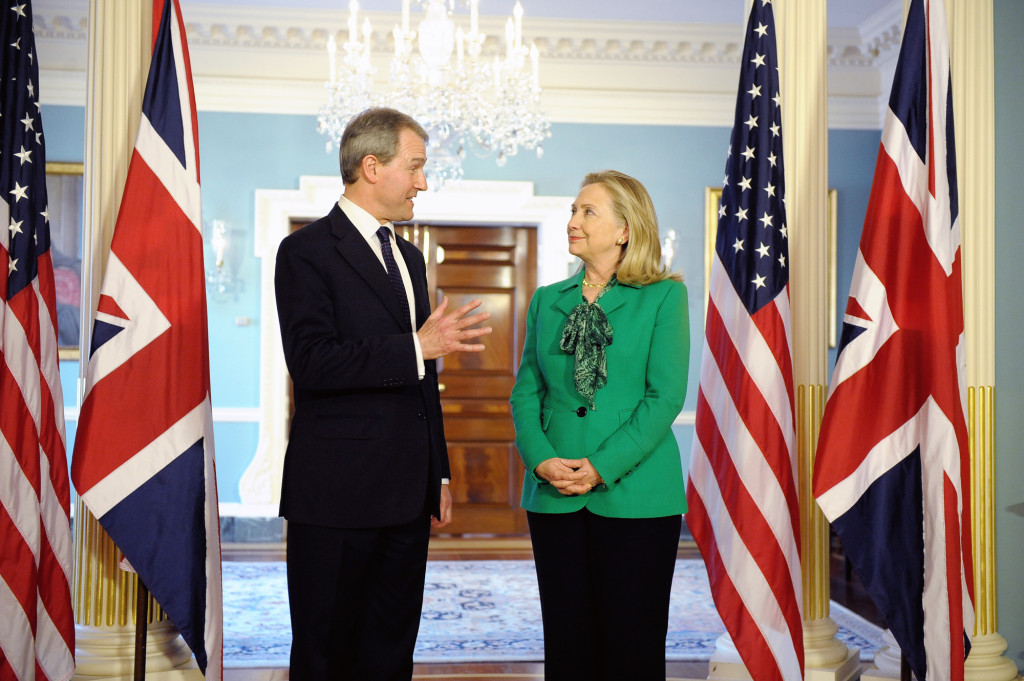It’s that time of year when people apparently decide they need to talk about ‘Europe’: this week we’ve seen two good examples of why this might not be such a good idea.
The first, made by former British agriculture minister, Owen Paterson, to the eurosceptic lobby Business for Britain, came on Monday.
At one level, it marks an important strengthening of the confidence of the Tory backbench in articulating their demands of David Cameron: as a figure with a certain degree of influence (and a ministerial track record to boot), Paterson is not so easily ignored as others who have never been trusted with a portfolio. Couple that with his ability to share his insider perspective, and it was not surprising that many media outlets chose to give it a good degree of prominence.
At the other level, this was a speech that confirmed one of the key weaknesses of the eurosceptics’ position: the lack of well-developed alternatives.
Paterson’s key argument was that as a member of the EU, the UK has lost its voice in international fora, and suffers from the poor representation that the EU offers its constituents. Thus, British agricultural interests weren’t getting represented by the Commission, and international partners with whom the UK has shared interests were also weakened in developing regulation that worked for them.
Outside of the EU, the UK would – it was argued – be able to represent itself and build strong alliances with everyone it wanted, without having to live with the compromises of working with the rest of the Union.
If one accepts this view, then withdrawal would offer a benefit to the UK, since it resolves the query I’ve raised before: how one becomes more influential by leaving a large block.
However, it does rather beg the question of how Paterson thinks the EU works. Even in a communitarised field such as CAP, the Commission is still closely linked in with national ministries, all of whom have ample opportunity to lobby for their views to be represented. As a large agricultural producer, with strong export interests, one would imagine that the British government would be at the front of making the system work for them, rather than the other way around. Sadly, this was not something that Paterson chose to discuss.
Moreover, his argument highlights the uncomfortable point that leaving the EU doesn’t free a country from international ‘interference’: the international architecture of regulation grows at a much greater pace than the EU’s scope these days, in recognition of the increasing inter-penetration of economies and societies. At least with ‘le projet‘, as Paterson called the EU, one’s specific weight within negotiations and lobbying is that much larger, and there is a degree of protection in working as a block.
All of this is quite aside from Paterson’s big idea: to invoke Art.50 TEU and negotiate a new relationship between the UK and the EU as the former heads out. This suggests either a lack of understanding of how Art.50 works or (more likely) a perfectly good understanding of how it works, coupled to a determination that membership can never be good for the UK.
I like the Pope
If Paterson’s view turns out to be little more than a rehashing of old innuendo and misconception, then Pope Francis’ visit to the European Parliament on Tuesday was an opportunity for everyone to feel better about their view of the EU.
Francis’ speech was greeted with great jubilation, not only for its content, but also for its very existence – not since John Paul II has a pontiff thought it worthwhile to pop up to Strasbourg. Many selfies ensued.
The Pope talked about how Europe has lost some of its prominence in the world, how its obligations to others continue and how its values still matter. There was also something about monads, but we’ll ignore that for a moment.
Most instructive was the reaction. Pretty much everyone in the (packed) chamber was happy to associate themselves with the Pope, even the arch-sceptics. Online, politicians and commentators of every stripe rushed in to claim that the Pope was right behind their view of the EU, good or bad, this or that, up or down.
Sceptics pounced on his image of an ‘old and haggard’ Europe, just as the more communautaire noted his statement on the ‘great ideal of a united and peaceful Europe’.
In short, Francis did what all good speakers should do and made a speech for everyone. The price was that the part of his message about the EU living up to its moral obligations – to migrants, to the environment – got a bit lost. But hey, it’s still the Pope! And he agrees with me!
If there was any real value to Francis’ visit, then it was to underline the importance of secular – in the sense of non-insider – debate about European integration. I’ve yet to see any comment that suggests that an Argentinian head of an organisation with most of its members outside the EU (and a migrant worker at that) should keep his views to himself and let Europeans work it out themselves: the contrast with the British debate is instructive.
Similarly instructive is the value of high-profile contributions to a European debate, to provoke and stimulate that debate. Francis ended his speech with an exhortation to MEPs to help Europe ‘rediscover itself’, but surely it is not just for the European Parliament to do. If Europeans are to find a way to secure a stable future for themselves, then they have to engage in the process of building that future.
And I’m pretty certain the Pope agrees with me on this.

